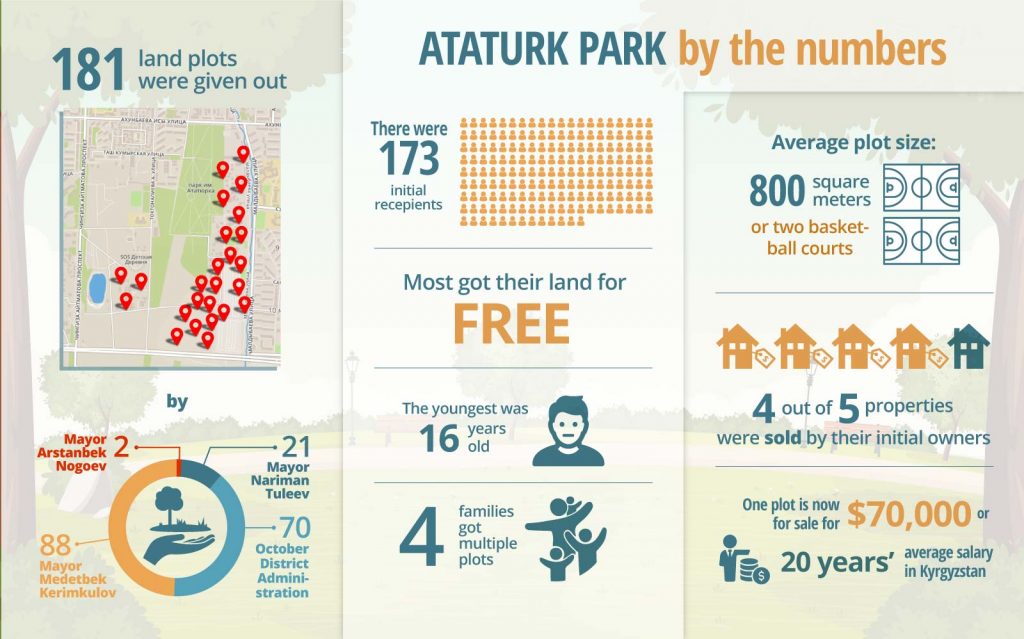Between 2000 and 2008, authorities in Kyrgyzstan divided up a large swath of Ataturk Park, a beloved green space in the country’s capital, Bishkek, and handed it out to 173 people — many of them wealthy and well-connected.
These land grants were made with no oversight or public explanation, and the names of the beneficiaries were never released. Ordinary citizens in Bishkek only realized this was happening when parts of the park were suddenly fenced off, and the dust and noise of construction on private villas began to blow through what had been verdant land open to all.
But whose hands did the park fall into?
To answer this question, reporters from Kloop, OCCRP’s member center in Kyrgyzstan, went on a year-long journey to track down the history of every plot of land ever privatized in Ataturk Park. They bought hundreds of records from the national land registry, a costly and lengthy process. They also reviewed thousands of pages of decrees, court records, and other government documents; filed more than 60 information requests with the government; interviewed dozens of people; and even went undercover to get a glimpse of the park’s new crop of mansions and villas.
Bit by bit, they used this information to piece together the story of how four successive mayors and other officials gave away a large part of what was once known as “the people’s park.”
Their most important findings include:
Local authorities gave out 181 plots of land in Ataturk Park to 173 people.
Most of the land was granted after the park became a protected area.
Most of the recipients — even the very wealthy — got the land for free.
Nearly half of the recipients were government officials, public figures, and businessmen, or their close relatives.
Only a fifth of these new owners kept the land. Most of them sold it at a substantial profit.
Almost half of the land is not in use.
Their most important findings include:To highlight these findings, Kloop and OCCRP built an interactive map profiling 78 politicians, officials, businessmen, and public figures — and their relatives — who got land in the park.
Kyrgyzstani law allows for small parcels of land to be granted to citizens — but using public parkland for such purposes is forbidden. And while thousands of those in need must wait for years to receive a small plot, those who got land in Ataturk Park had high-level positions or successful careers at the time. Most of them immediately sold the land they had been gifted, pocketing small fortunes from what was meant to be a public good.
